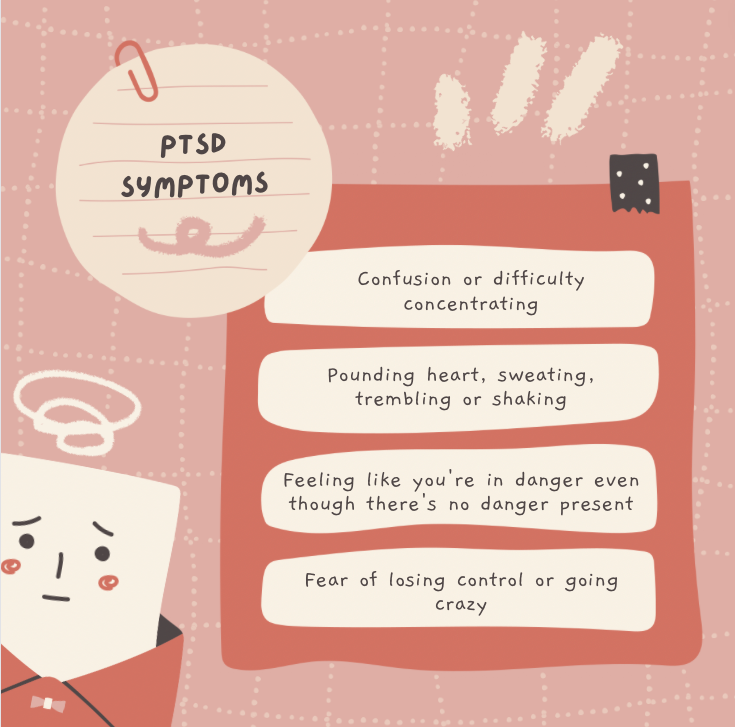The death of a loved one, a ghastly accident, or childhood abuse can create deep-rooted memories and experiences that affect us for as long as those memories are alive. These experiences can lead to mental health conditions, such as:
- Depression
- Anxiety
- Flashbacks
…reducing our quality of life.
Hypnotherapy, which is hypnosis used in a therapeutic context, can fortunately treat trauma. But how does it work, and will it work for you? Keep reading to find out and learn how to get started with hypnotherapy for trauma relief immediately.
Understanding Trauma and Its Effects
Trauma is when we experience frightening and stressful events that we feel out of our control or find it difficult to cope with.
It could be one incident or an ongoing event…
It may have also happened a long time ago, but the memory of the event and our response to it is still fresh in our minds. Trauma can happen at any age and affects each person differently. So, there’s no rule for what is considered traumatic.
However, traumatic events can make you feel:
- Frightened
- Humiliated
- Rejected
- Threatened
Trauma can happen in several ways, such as:
- A one-off or ongoing events
- Been directly harmed
- Living in a traumatic environment
- Watching harm occur to someone else
Types of Trauma
Although traumatic experiences are unique, there are some types or categories of trauma that people face.
- Childhood trauma: These are one-off or recurrent traumatic experiences that happen during childhood. Often, individuals carry on this trauma to adulthood because, as a child, it can be difficult to cope and handle the experiences.
- Collective trauma: This is when trauma happens to a group of people. For example a war or a car accident. However, this doesn’t mean everyone will experience the trauma the same way.
- Generational trauma: This is generational or intergenerational trauma that is experienced across generations in a family. It’s not entirely clear how these work, but research shows that trauma may affect our genes and can be passed on. However, this can also be learned from stories passed down from generation to generation or from observing how our parents behave.
- Secondary trauma: Here, you don’t experience the trauma directly, but you are closely related to it or witness the trauma. Examples include journalists reporting traumatic events or having a loved one die from an accident.
How Trauma Affects You
A traumatic experience can affect you in several ways, and these effects may continue long after the trauma is over. Trauma can make you feel:
- Angry
- Anxious
- Restless
- Numb
- Hypervigilant
You may also experience self-blame and try to justify the trauma. In other cases, trauma can affect you physically, such as:
- Headaches
- Pain in your body
- Shaking
- Panic attacks
Can Trauma Cause PTSD?
Post Traumatic Stress Disorder (PTSD) is a mental health problem that can result from a traumatic experience. In some cases, the effects of trauma will resolve after some time, but in posttraumatic stress disorder, these effects become intense, linger, and affect your day-to-day life.
Regardless of your trauma, hypnotherapy can help you discover the root cause of your trauma and guide you to resolve it.
Is Hypnotherapy Effective In Treating Trauma?
Some studies show that hypnotherapy may be effective for treating trauma and PTSD. A meta-analysis of six studies shows that hypnosis appears to be effective in reducing the symptoms of PTSD.

Another meta-analysis on hypnotherapy for trauma suggests that hypnosis techniques are an effective treatment for PTSD. However, the variety of personalities and the experiences of individuals makes some people enter into the hypnotic state more quickly – and hence achieve faster results from the treatment of trauma.
Researchers also found that spiritual hypnosis-assisted therapy was significantly effective in treating PTSD symptoms in patients with childhood trauma.
How Does Hypnotherapy For Trauma Work?
When a traumatic experience occurs, one way that you can respond is that your mind represses the memory and the way you feel about it and puts it away into your subconscious to prevent you from reliving the experience. In this case, it is like you get numbed out to life. However, certain incidents can trigger it and cause you to respond negatively — fear, anger, numbness, irritability, or paranoia.
In other cases the mind tries to keep you from re-experiencing the trauma by pulling you back into the memory – with all of the bad feelings again as if it is happening again and again.
Hypnotherapy helps you revisit those traumatic memories and their negative association — specific thoughts, emotions, and behavior — and replaces how you perceive or respond to them.
Here are the 4 stages of how hypnotherapy for trauma works.
1. Induction
During this stage, your hypnotherapist will get you to relax, focus, and eliminate distractions.
Techniques such as breathing in and out, muscle relaxation, or guided imagery may be used to induce that state of deep relaxation so you can access your subconscious.
2. Deepener
This is a continuation of the first stage to help you get deeper into a relaxed state.
Techniques such as counting down or descending imagery such as walking down the stairs are used to ease your openness to suggestions.
3. Suggestion
During this stage, your hypnotherapist will use guided imagery or chosen words to change your experience, behavior, or perception. These suggestions usually resolve a symptom or explore the experiences associated with the symptom.
During this stage, you’ll reframe the experiences, perceptions, or responses associated with the traumatic experience.
4. Emergence
This is the stage where you come out of hypnosis. Your therapist will guide you with reverse deepeners, such as counting up or walking up the stairs.
Benefits of Hypnotherapy for Trauma
Treating PTSD with hypnosis can offer individuals the following benefits.
Reduced Stress and Anxiety
Hypnotherapy helps to calm the nervous system, reducing stress and anxiety associated with the traumatic experience. Since it also induces a deep state of relaxation, it helps to promote overall well-being.

Drug-Free
Using medications to treat PTSD symptoms can have side effects such as insomnia, anxiety, and nausea. With hypnosis, the side effects are rare, as it’s a natural method of mind-body treatment.
Immediate Results
It’s possible to experience immediate relief from trauma symptoms after a hypnotherapy session. Follow-up sessions and at-home techniques can help achieve permanent long-term results.
Increased Self-Awareness And Insight
Hypnosis can increase self-awareness by enabling individuals to gain deeper insights into their thoughts, emotions, and behavior. This increased awareness can lead to a greater understanding of the root causes of trauma, and help in resolving it.

Behavioral Changes and Coping Skills
Hypnosis can be used to reinforce positive behavioral changes and develop effective coping strategies. This can be particularly beneficial for managing triggers and overcoming maladaptive patterns of behavior associated with trauma.
Symptoms of PTSD and How Hypnotherapy Addresses Them
There are 4 categories of PTSD symptoms according to DSM-5
- Intrusion
- Avoidance
- Alterations in cognition and mood
- Alterations in arousal and reactivity
Hypnotherapy addresses each of these categories by going into the root of these symptoms. Let’s take a look.
Intrusion
This happens in the form of nightmares, flashbacks, and emotional distress after traumatic reminders. These intrusive thoughts can affect your quality of life and make it seem like you’re losing control of your experiences and reactions.
How Hypnotherapy Helps:
Hypnotherapy helps you regain control by accessing and processing traumatic memories in a safe and controlled environment. In a relaxed and focused state, you can revisit and reframe these memories, reducing their emotional intensity and impact.
Avoidance
To avoid revisiting the trauma, individuals may avoid specific places, people, or events. They might also avoid the trauma by disassociation, addictive behaviors, or substance abuse, which affects their daily lives.
How Hypnotherapy Helps:
By delving into the subconscious mind, hypnotherapy helps individuals uncover the underlying reasons behind avoidance tendencies. Through guided sessions, you can safely explore and process difficult emotions and experiences associated with trauma…
…gradually reducing the need for avoidance as a coping mechanism.
Alterations in Cognition And Mood
This includes the inability to remember important aspects of the traumatic event, negative feelings or thoughts, leading to distorted views about oneself (e.g. I’m bad), distorted thoughts about the cause of the event, blaming oneself or others, and unable to experience positive emotions (blank, sad, or unhappy)
How Hypnotherapy Helps:
Hypnotherapy can help individuals identify and challenge negative thought patterns and distorted beliefs associated with the traumatic event. Through guided visualization and suggestion techniques, hypnotherapy can help with cognitive restructuring, promoting more balanced and realistic perspectives about oneself and the traumatic experience.
Alterations in Arousal And Reactivity
Symptoms can include:
- Irritability or aggression
- Dangerous behaviors
- Hypervigilance
- Difficulty concentrating
- Difficulty sleeping
These symptoms are your body’s way of trying to work out the trauma.
How Hypnotherapy Helps:
Hypnosis helps you regulate their physiological responses and manage heightened arousal levels associated with trauma-related symptoms. Another crucial technique is to give you the ability to do what you wished you did during the trauma. This could be striking out, saying No, or pushing away a weapon.
Regardless of the symptoms of your trauma, with hypnosis, you can identify the root cause of that trauma, address it, and regain control over your life.
Let Go Of Your Trauma With Hypnotherapy!
While traumatic memories cannot be erased, you can reframe those experiences with positive thoughts, beliefs, and responses.
Want to live above your traumatic experiences?
Then book a consultation today with a hypnotherapist at Silicon Valley Hypnosis Center. Let’s partner with you to regain complete control of your life.
FAQs
[WPSM_AC id=6796]
Disclaimer: The information in this article is for informational purposes only and is not meant to provide medical or mental health advice. Terms used in this article are meant to be interpreted as common vernacular, and are not meant to diagnose or treat any type of mental health disorder or physical disease. We do not diagnose or treat any type of mental health disorder or physical disease, nor do we hold ourselves out to offer these services. Please seek care from a licensed mental health or medical doctor for these purposes.